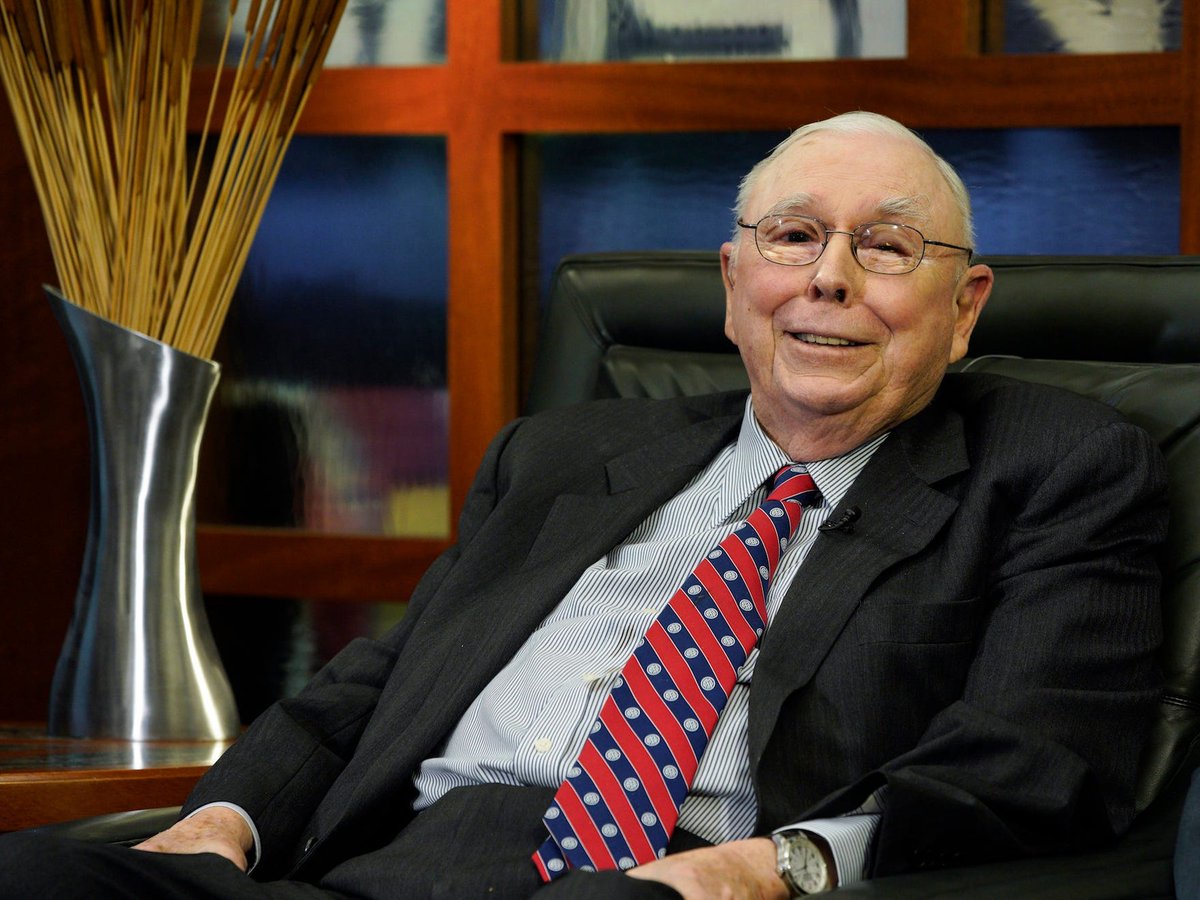
The @ProfileRead's most popular deep-dive is the one featuring Charlie Munger, the master of mental models.
Here are 8 lessons I've learned from his life & career.
👇
Here are 8 lessons I've learned from his life & career.
👇

1) Be a survivor, not a victim.
Munger’s marriage failed at 29, he lost a child to cancer & he got his eye removed. “Life will have terrible blows in it … horrible, unfair blows."
He says that every missed chance is an opportunity to behave well & learn something constructive.
Munger’s marriage failed at 29, he lost a child to cancer & he got his eye removed. “Life will have terrible blows in it … horrible, unfair blows."
He says that every missed chance is an opportunity to behave well & learn something constructive.
2) Know the edge of your competence.
When Munger was younger, he struggled to overcome his own arrogance.
Over the years, he's learned a valuable lesson: No one is infallible, and you need to operate within the subject areas you know best.
When Munger was younger, he struggled to overcome his own arrogance.
Over the years, he's learned a valuable lesson: No one is infallible, and you need to operate within the subject areas you know best.
3) Learn from those who came before you.
Marcus Cicero is famous for saying that the man who doesn’t know what happened before he was born goes through life like a child.
“That is a very correct idea,” Munger says.
Marcus Cicero is famous for saying that the man who doesn’t know what happened before he was born goes through life like a child.
“That is a very correct idea,” Munger says.
4) Use inversion to solve your problems.
We often solve our problems one way — forward. Try inverting it.
So rather than asking, “What new behaviors can I take on to ensure I have a successful marriage,” it might be more useful to ask, “What behaviors could ruin my marriage?”
We often solve our problems one way — forward. Try inverting it.
So rather than asking, “What new behaviors can I take on to ensure I have a successful marriage,” it might be more useful to ask, “What behaviors could ruin my marriage?”
5) Keep your emotions under control.
Your intelligence doesn't matter if you have little emotional control.
"You need patience and discipline and an ability to take losses & adversity without going crazy. You need to not be driven crazy by extreme success."
Your intelligence doesn't matter if you have little emotional control.
"You need patience and discipline and an ability to take losses & adversity without going crazy. You need to not be driven crazy by extreme success."
6) Beware of extreme ideology.
Munger has an “iron prescription” to make sure he doesn’t become a slave to his beliefs.
“I’m not entitled to have an opinion on this subject unless I can state the arguments against my position better than the people do who are supporting it."
Munger has an “iron prescription” to make sure he doesn’t become a slave to his beliefs.
“I’m not entitled to have an opinion on this subject unless I can state the arguments against my position better than the people do who are supporting it."
7) Cultivate a life of deserved trust.
Munger believes that the highest form a civilization can reach is a seamless web of deserved trust.
Surround yourself with reliable people.
“And so if your proposed marriage contract has 47 pages, my suggestion is you not enter."
Munger believes that the highest form a civilization can reach is a seamless web of deserved trust.
Surround yourself with reliable people.
“And so if your proposed marriage contract has 47 pages, my suggestion is you not enter."

8) Remember his three rules for a career.
1) Don't sell anything you wouldn't buy yourself;
2) Don't work for anyone you don't respect and admire; and 3) Work only with people you enjoy.
🔥
1) Don't sell anything you wouldn't buy yourself;
2) Don't work for anyone you don't respect and admire; and 3) Work only with people you enjoy.
🔥
• • •
Missing some Tweet in this thread? You can try to
force a refresh





